Redesigning the Broken U.S. Health System: The Nursing Profession’s Role in Ending Unequal Treatment
May 14, 2025
3:00 PM - 4:00 PM (ET)
Webinar Details
In June 2024, the National Academies of Sciences, Engineering, and Medicine (NASEM) released Ending Unequal Treatment: Strategies to Achieve Equitable Health Care and Optimal Health for All—a follow-up to the original Unequal Treatment report from 2003. Ending Unequal Treatment offers a comprehensive, deeply researched, evidence-based review of health and health inequities within the US healthcare system. The report explores the barriers that continue to undermine efforts to achieve more equitable healthcare, including behavioral health, and presents recommendations for future actions that would achieve a more effective and sustained approach to addressing the problem, with implications for the nursing profession. This presentation will provide an overview of the Ending Unequal Treatment report and highlight what the findings mean for nurses and other health professionals, including their role in eliminating health and healthcare inequities.
Objectives:
- Review and summarize the current state of healthcare and health inequities in the U.S., the evolving political moment, and the role of nurses and other healthcare professionals in responding to these uncertain times.
- Identify enduring, fundamental truths for the nursing profession that can guide efforts to eliminate health inequities.
- Integrate social and clinical care principles with key strategies to advance an interdisciplinary health workforce, policy advocacy, and systems change to end unequal treatment.
This Webinar is hosted by Jonas Nursing.

Speakers
Speaker
 Vincent Guilamo-Ramos, PhD, MSN, MPH, MS, MSW, BS, RN, ANP-BC, LCSW, PMHNP-BC, FAAN
Vincent Guilamo-Ramos, PhD, MSN, MPH, MS, MSW, BS, RN, ANP-BC, LCSW, PMHNP-BC, FAAN
Executive Director
Institute for Policy Solutions
Leona B. Carpenter Chair in Health Equity and Social Determinants of Health Professor
Johns Hopkins University School of Nursing
Dr. Vincent Guilamo-Ramos is the Executive Director of the Institute for Policy Solutions and the Leona B. Carpenter Chair in Health Equity and Social Determinants of Health (SDOH) at the Johns Hopkins School of Nursing. He is also the founding director of the Center for Latino Adolescent and Family Health (CLAFH). Dr. Guilamo-Ramos is a nurse practitioner, dually licensed in adult health and psychiatric-mental health nursing.
Widely regarded as a scholar and leader in SDOH and in developing, evaluating, and translating nurse-driven, community-based interventions, his research has been funded for two decades by NIH, CDC, and various federal agencies. His work has been published in leading scientific journals, including The New England Journal of Medicine, The Lancet, The British Medical Journal, Nature Medicine, Clinical Infectious Diseases, and the American Journal of Public Health.
Dr. Guilamo-Ramos has served as a member of the ad hoc NASEM Committee on Unequal Treatment Revisited: The Current State of Racial and Ethnic Disparities in Healthcare; the NASEM Standing Committee on Reproductive Health, Equity, and Society; and the board of UnidosUS, the nation’s largest Latino-focused civil rights organization. He also serves on the Latino Commission on AIDS Board of Directors as vice chair and as the chair of the board of directors for Power to Decide.
Tags
Redesigning the Broken U.S. Health System: The Nursing Profession’s Role in Ending Unequal Treatment
May 14, 2025
3:00 PM - 4:00 PM (ET)
Webinar Details
In June 2024, the National Academies of Sciences, Engineering, and Medicine (NASEM) released Ending Unequal Treatment: Strategies to Achieve Equitable Health Care and Optimal Health for All—a follow-up to the original Unequal Treatment report from 2003. Ending Unequal Treatment offers a comprehensive, deeply researched, evidence-based review of health and health inequities within the US healthcare system. The report explores the barriers that continue to undermine efforts to achieve more equitable healthcare, including behavioral health, and presents recommendations for future actions that would achieve a more effective and sustained approach to addressing the problem, with implications for the nursing profession. This presentation will provide an overview of the Ending Unequal Treatment report and highlight what the findings mean for nurses and other health professionals, including their role in eliminating health and healthcare inequities.
Objectives:
- Review and summarize the current state of healthcare and health inequities in the U.S., the evolving political moment, and the role of nurses and other healthcare professionals in responding to these uncertain times.
- Identify enduring, fundamental truths for the nursing profession that can guide efforts to eliminate health inequities.
- Integrate social and clinical care principles with key strategies to advance an interdisciplinary health workforce, policy advocacy, and systems change to end unequal treatment.
This Webinar is hosted by Jonas Nursing.

Speakers
Speaker
 Vincent Guilamo-Ramos, PhD, MSN, MPH, MS, MSW, BS, RN, ANP-BC, LCSW, PMHNP-BC, FAAN
Vincent Guilamo-Ramos, PhD, MSN, MPH, MS, MSW, BS, RN, ANP-BC, LCSW, PMHNP-BC, FAAN
Executive Director
Institute for Policy Solutions
Leona B. Carpenter Chair in Health Equity and Social Determinants of Health Professor
Johns Hopkins University School of Nursing
Dr. Vincent Guilamo-Ramos is the Executive Director of the Institute for Policy Solutions and the Leona B. Carpenter Chair in Health Equity and Social Determinants of Health (SDOH) at the Johns Hopkins School of Nursing. He is also the founding director of the Center for Latino Adolescent and Family Health (CLAFH). Dr. Guilamo-Ramos is a nurse practitioner, dually licensed in adult health and psychiatric-mental health nursing.
Widely regarded as a scholar and leader in SDOH and in developing, evaluating, and translating nurse-driven, community-based interventions, his research has been funded for two decades by NIH, CDC, and various federal agencies. His work has been published in leading scientific journals, including The New England Journal of Medicine, The Lancet, The British Medical Journal, Nature Medicine, Clinical Infectious Diseases, and the American Journal of Public Health.
Dr. Guilamo-Ramos has served as a member of the ad hoc NASEM Committee on Unequal Treatment Revisited: The Current State of Racial and Ethnic Disparities in Healthcare; the NASEM Standing Committee on Reproductive Health, Equity, and Society; and the board of UnidosUS, the nation’s largest Latino-focused civil rights organization. He also serves on the Latino Commission on AIDS Board of Directors as vice chair and as the chair of the board of directors for Power to Decide.
Tags
Redesigning the Broken U.S. Health System: The Nursing Profession’s Role in Ending Unequal Treatment
May 14, 2025
3:00 PM - 4:00 PM (ET)
Webinar Details
In June 2024, the National Academies of Sciences, Engineering, and Medicine (NASEM) released Ending Unequal Treatment: Strategies to Achieve Equitable Health Care and Optimal Health for All—a follow-up to the original Unequal Treatment report from 2003. Ending Unequal Treatment offers a comprehensive, deeply researched, evidence-based review of health and health inequities within the US healthcare system. The report explores the barriers that continue to undermine efforts to achieve more equitable healthcare, including behavioral health, and presents recommendations for future actions that would achieve a more effective and sustained approach to addressing the problem, with implications for the nursing profession. This presentation will provide an overview of the Ending Unequal Treatment report and highlight what the findings mean for nurses and other health professionals, including their role in eliminating health and healthcare inequities.
Objectives:
- Review and summarize the current state of healthcare and health inequities in the U.S., the evolving political moment, and the role of nurses and other healthcare professionals in responding to these uncertain times.
- Identify enduring, fundamental truths for the nursing profession that can guide efforts to eliminate health inequities.
- Integrate social and clinical care principles with key strategies to advance an interdisciplinary health workforce, policy advocacy, and systems change to end unequal treatment.
This Webinar is hosted by Jonas Nursing.

Speakers
Speaker
 Vincent Guilamo-Ramos, PhD, MSN, MPH, MS, MSW, BS, RN, ANP-BC, LCSW, PMHNP-BC, FAAN
Vincent Guilamo-Ramos, PhD, MSN, MPH, MS, MSW, BS, RN, ANP-BC, LCSW, PMHNP-BC, FAAN
Executive Director
Institute for Policy Solutions
Leona B. Carpenter Chair in Health Equity and Social Determinants of Health Professor
Johns Hopkins University School of Nursing
Dr. Vincent Guilamo-Ramos is the Executive Director of the Institute for Policy Solutions and the Leona B. Carpenter Chair in Health Equity and Social Determinants of Health (SDOH) at the Johns Hopkins School of Nursing. He is also the founding director of the Center for Latino Adolescent and Family Health (CLAFH). Dr. Guilamo-Ramos is a nurse practitioner, dually licensed in adult health and psychiatric-mental health nursing.
Widely regarded as a scholar and leader in SDOH and in developing, evaluating, and translating nurse-driven, community-based interventions, his research has been funded for two decades by NIH, CDC, and various federal agencies. His work has been published in leading scientific journals, including The New England Journal of Medicine, The Lancet, The British Medical Journal, Nature Medicine, Clinical Infectious Diseases, and the American Journal of Public Health.
Dr. Guilamo-Ramos has served as a member of the ad hoc NASEM Committee on Unequal Treatment Revisited: The Current State of Racial and Ethnic Disparities in Healthcare; the NASEM Standing Committee on Reproductive Health, Equity, and Society; and the board of UnidosUS, the nation’s largest Latino-focused civil rights organization. He also serves on the Latino Commission on AIDS Board of Directors as vice chair and as the chair of the board of directors for Power to Decide.
Tags
Unifying Caring Science and the AACN Essentials
October 02, 2024
2:00 PM - 3:00 PM (ET)
Webinar Details
This webinar aims to inform nursing education by offering an expanded perspective on the AACN Essentials through the integrative lens of Caring Science and the ANA Definition of Nursing. Building on Watson's seminal work in Caring Science and Human Caring Theory, this webinar will demonstrate how the 10 Caritas Processes® serve as a discipline-specific nursing paradigm that incorporates and transcends competencies.
Caring Science provides an ethical, humanistic, and heart-centered educational guide for the future of nursing. The webinar will include exemplars of academic-practice partnerships in Caring Science, that unify, redefine, and advance both nursing education and practice. It will demonstrate how this approach revolutionizes nursing curricula, creating a more holistic and compassionate foundation for the discipline. Furthermore, the presentation will champion a visionary partnership model between healthcare establishments and academic institutions, integrating the AACN Essentials within the broader context of Caring Science and the nursing discipline. This integration aims to elevate the standards of nursing education, preparing a new generation of nurses equipped with competence grounded in the discipline, and providing a deeper understanding of the caring, healing, and compassionate aspects of the profession.
Objectives:
- Critique the Caring Science Nursing paradigm in relation to Medical Science and the ANA's definition of Nursing, highlighting key differences and connections.
- Discover the integration of AACN Essentials and Caring Science in nursing education, examining their roles in curriculum development, and identifying common educational strategies across nursing schools.
- Explore practical applications of Caring Science and the 10 Caritas Processes® in healthcare institutions and nursing education, including their alignment with AACN Essentials
Note: Recording of the webinar will be available soon after the webinar airs. Visit AACN's On-Demand Webinars to watch .
Speakers
Speakers
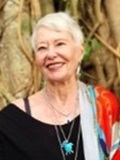
Jean Watson, PhD, RN, AHN-BC, FAAN, LL
Founder –Director
Watson Caring Science Institute
Dr. Jean Watson is known around the world for her Theory of Human Caring and advancement of Caring Science as disciplinary context for Nursing’s future. She is the Founder of the Non-profit, Watson Caring Science Institute and Distinguished Professor Dean Emerita University of Colorado Denver. She is the author, co-author, or editor of over 30 books on Caring Science and Unitary Caring. Her latest book is titled Metaphysics of Unitary Caring Science. A Cosmology of Love, (2025 pub. by Springer). Her work is used globally, promoting academic and clinical partnerships toward theory-guided caring science curriculum and professional Caritas Practice, Research, and Leadership. Watson is the recipient of numerous national and international awards and honors including 15 Honorary Doctorates; she is designated as a Living Legend by the American Academy of Nursing, its highest honor. View full bio.

Sara Horton-Deutsch, PhD, RN, FAAN, ANEF, SGAHN
University of San Francisco
Director of USF/Kaiser Permanente Partnership and Faculty Associate
Watson Caring Science Institute
Dr. Sarah Horton-Deutsch has led in academic and practice settings for over 30 years as an advanced practice psychiatric/mental health nurse, teacher/practitioner, consultant, program director, caring science endowed chair, coach, and academic/practice partnership director. In 2022, she was inducted into the Global American Holistic Nursing. She has contributed to evidence-informed knowledge development throughout her academic and practice career to ensure compassionate, safe, and quality care. As a reflective leader, she focuses on inward development to positively influence change. She has co-authored several books on Reflective Practice, Caring Science, and Caritas Coaching. She i s a Caritas Coach & Leader, Reiki Practitioner, and Healing Circle Facilitator. Through her journey, she has learned the necessity of connecting to one’s inner sources of wisdom, power, and healing, as well as the arts and humanities that once defined the discipline of nursing. She is passionate about facilitating critical, deep, and authentic connections that support regeneration, renewal, and the profession’s evolution. Her latest books, Visionary Leadership in Healthcare (2022) and Reflective Practice: Reimagining Ourselves, Reimagining Nursing (2024), were published through SIGMA, the former winning an AJN 1st place book of the year award in Leadership. She is currently a champion for the ANCC Essentials within the USF School of Nursing and Health Professions. She is co-director of the Caritas Leadership Program for the Watson Caring Science Institute.

Danny G. Willis, DNS, RN, PMHCNS-BC, FAAN
Dean and Professor
University of Rhode Island College of Nursing
Dr. Danny G. Willis serves as Dean of the University of Rhode Island College of Nursing. He Caritas® Leader Faculty. In his 20-year academic career, he has served as Dean at Saint Louis University Valentine School of Nursing, Associate Dean for Academic Affairs at the University of Wisconsin-Madison School of Nursing, and Department Chair at Boston College, Connell School of Nursing. He is a Fellow of the American Academy of Nursing and has chaired the Expert Panel on Theory-Guided Practice and is a member of the Expert Panel on Violence. His program of research and scholarship primarily focuses on wellbeing and healing in the aftermath of traumatic experiences. His work has been recognized with many awards, including the Eastern Nursing Research Society "Rising Star" Award, American Psychiatric Nurses Association Nancy Valentine "Leadership" Award, and R-level research funding as Principal Investigator from the National Institutes of Health (NIH). He has mentored undergraduate, masters, and PhD students from nursing, social work, child and human development, and counseling psychology. Dr. Willis has published widely in nursing and other health- related journals on qualitative research methods, foundations of the discipline, child maltreatment, the aftermath of hate crime, school children being bullied, child witness to violence, mental health, sleep, and healing. He has served as chair of the American Psychiatric Nursing Association (APNA) Research Council and currently co-chairs the Eastern Nursing Research Society (ENRS) Qualitative Research Interest Group. His publication explicating a central unifying focus for the discipline of nursing ‘facilitating humanization, meaning, choice, quality of life, and healing in living and dying,” published in Advances in Nursing Science, garnered national and international recognition for its relevance to nursing. Dr. Willis enthusiastically shares his work nationally and internationally with invited papers and presentations in the United States, Chile, Colombia, Ireland, England, Portugal, and Japan.
Tags
Jonas Scholars 2024-2026 Application Technical Assistance Webinar
April 30, 2024
12:00 PM - 1:00 PM (ET)
Webinar Overview
The Jonas Scholars program has launched applications for the 2024-2026 cohort, with plans to enhance the program with a greater focus on students who are going to transition to faculty roles. Through leadership development programming, mentorship, and financial support, Jonas Scholars will be positioned to successfully transition from a doctoral student to a teaching role. Participants will learn more about the eligibility and selection process for institutions and scholars, understand the internal processes they should conduct to select students for submission, and understand the technical steps required to submit an application.
Objectives
- Understand the eligibility and selection criteria for both institutions and students for the eighth cohort of the Jonas Scholars program.
- Evaluate a scholar selection process to help but forward students most aligned with the goals of the Jonas Scholars program.
- Identify how to submit an application to the Jonas Scholars program through the application platform.
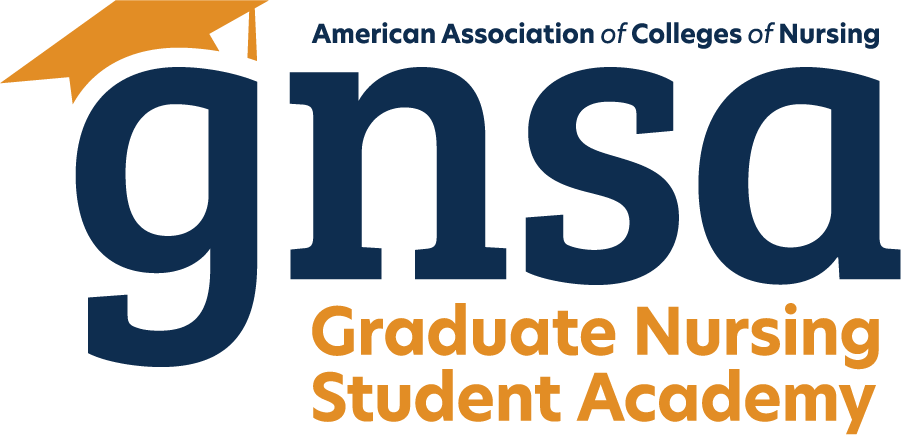
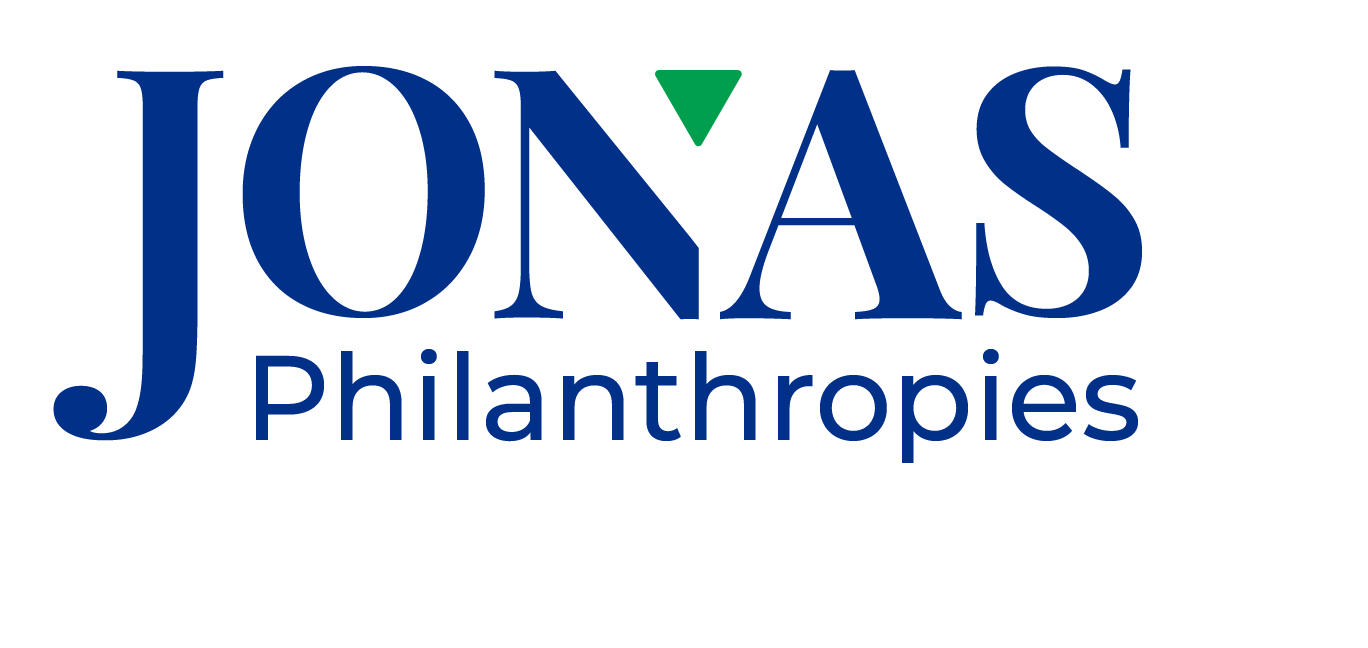 This Webinar is hosted by Jonas Nursing of Jonas Philanthropies. For more information on the Jonas Philanthropies, visit http://jonasphilanthropies.org/.
This Webinar is hosted by Jonas Nursing of Jonas Philanthropies. For more information on the Jonas Philanthropies, visit http://jonasphilanthropies.org/.
Speakers
Speakers
Noah Brown, MPA
Jonas Grant Manager
American Association of Colleges of Nursing
Marta Okoniewski, MPA
Director of Student Engagement
American Association of Colleges of Nursing
Tags
Environmental Health: Perspectives on the Nursing Role
February 27, 2024
3:00 PM - 4:00 PM (ET)
Hosted by AACN's Research Leadership Network (RLN)
Webinar Details
During this webinar, participants will hear one nurse’s journey from the bedside to environmental health leader, explore resources from the National Environmental Education Foundation and discuss opportunities for research in the environmental health space.
Objectives:
- Understand the role nursing plays in promoting environmental health.
- Explore resources for healthcare providers from the National Environmental Education Foundation.
- Identify and articulate at least two opportunities for nursing research in the environmental health field.
Note: Recording of the webinar will be available soon after the webinar airs. Visit AACN's On-Demand Webinars to watch.
Speakers
Speakers
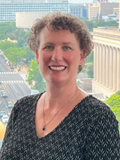
Christy Haas-Howard, MPH, BSN, BA, RN, AE-C, NCSN
Program Director, Health
National Environmental Education Foundation (NEEF)
Christy Haas-Howard oversees the development, execution, and evaluation of health initiatives related to the environment. She collaborates with the conservation and K-12 education teams to identify priority areas of common interest to maximize resources and impact. As an experienced health care provider, she tracks emerging trends in the health and environment space, recognizing and amplifying the opportunities to create greater health equity and environmental justice. Christy comes to NEEF with over 17 years as a registered nurse in the school setting. She has been asthma educator-certified since 2009 and has led various school-based asthma programs at the local and state level. She has also worked at the national level to cultivate an increase in school nurse’s knowledge and skills related to asthma care. Christy has presented and published on asthma and the upstream benefits of addressing environmental exposures and climate change. Her other previous projects include supporting a pilot air quality sensor network and health literacy project in Denver, CO, and implementing an air quality and asthma literacy Environmental Health Nurse Fellowship. Christy holds a BA in Economics from Claremont McKenna College, a BS in Nursing from Metropolitan State University, Denver, and a MPH from the Colorado School of Public Health. She enjoys gardening, playing games with her family, walking her dogs, and hiking in the beautiful Rocky Mountains.
Tags
Engaging Learners Through Use of Medical Readers Theatre
February 13, 2024
2:00 PM - 3:00 PM (ET)
Hosted by the Faculty Leadership Network
Webinar Details
Using stories to teach is not a new strategy for helping students understand best practices in patient care in the Affective Domain. However, the use of Medical Readers Theatre is a relatively new concept to nursing as it uses stories and scripts from nontraditional sources, as well as involves student participation to read the story as the teaching points are made. The instructor facilitates discussion upon completion of the “play” to impress key principles of patient care that may be affected by bias, stereotyping, as well as attitudes, beliefs, and value systems of student learners. Join us for this webinar to uncover the power of narratives, the art of immersive learning, and the transformative potential in healthcare education.
Objectives:
- Discuss the importance of the affective domain in patient care.
- Identify the principles and strategies for utilizing Medical Readers Theatre to teach affective domain concepts.
- Explore options of stories that can be used to teach affective domain concepts.
Note: Recording of the webinar will be available soon after the webinar airs. Visit AACN's On-Demand Webinars to watch.
Speakers
Speakers

Andrea Novak, PhD, MSN, RN, NPD-BC, FAEN
Field Experience Coordinator/Adjunct Faculty
Aspen University
Dr. Andrea Novak is currently the Field Experience Coordinator and Adjunct Faculty for Aspen University. Her history in adult education spans over 30 years with most recently serving as an AHEC Nurse for about 23 years. Dr. Novak is a member of the NCNA Council on Gerontology and serves as a peer reviewer for NCNA’s CEAU Task Force as well as a Peer Reviewer for the Emergency Nurses Association Education Committee.
Her nursing background began as many of us did as a med-surg nurse which expanded to working in the emergency nursing arena and later as a nurse educator for a high-volume emergency department. Andrea is one of the North Carolina’s 100 Great Nurses, as well as a Fellow in the Academy of Emergency Nursing. She has served on the editorial boards of the Journal of Emergency Nursing, the National AHEC Organization and currently on the Aspen Journal. A published author and national speaker, Dr. Novak also received training as a health literacy consultant through UNC Chapel Hill and developed a strong interest in both helping healthcare providers meet the literacy needs of their patients, especially those most vulnerable; the elderly. Dr. Novak holds a PhD in Public Health; community health and education from Walden University, two Masters Degrees, two bachelor degrees, and an ADN.
Tags
Nurse Leaders’ Experiences Managing the Clinical Environment During COVID-19
December 14, 2023
2:00 PM - 3:00 PM (ET)
Hosted by the Faculty Leadership Network
Webinar Details
COVID-19 tested the competency of nurse leaders to manage in an environment of crisis, ambiguity, and chaos. This study uncovers nurse leaders’ perspectives on sources of distress, coping mechanisms, significant challenges, and how specific demographics impact resilience, agility, and emotional regulation. This study offers opportunities to enhance middle manager preparation and reimagine equitable and inclusive programs for diverse leaders.
Objectives:
- Identify the leadership competencies perceived by nurse leaders as most challenging during ongoing crisis.
- Outline the demographic characteristics associated with the perception of challenging leadership competencies as it relates to resilience, agility, and emotional regulation.
- Discover equitable and inclusive best practices for competency preparation and ongoing development for nurse leaders.
Note: Recording of the webinar will be available soon after the webinar airs. Visit AACN's On-Demand Webinars to watch.
Speakers
Speakers
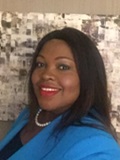
Chika Anueyiagu, DNP, RN, NE-BC
Director of Surgical Services
Yale New Haven Hospital
Dr. Chika Anueyiagu is the Director of Surgical Services at Yale New Haven Hospital with oversight of Inpatient surgical units including, surgical intensive care, trauma, intermediate care, bariatric, general surgery, vascular, and minimally invasive surgery units. She has leadership experience spanning over 20 years in several roles across specialties and settings. In these roles, she had the responsibility of alignment and executing strategic initiatives while ensuring excellent outcomes in nurse-sensitive indicators. Chika earned her Doctor of Nursing Practice Degree from Fairfield University in Executive Leadership. She obtained her Nurse Executive Board certification through the American Nurses Credentialing Center.
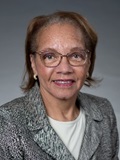
Patricia Span, PhD, RN, CPHQ, CENP
Strategy & Learning Specialist
Yale New Haven Hospital
Dr. Patricia Span is the Strategy & Learning Specialist at Yale New Haven Hospital Patient Services Administration with primary responsibility for development and oversight of the nursing strategic business plan and nursing communications comprised of the annual report and nursing news. She has extensive experience as a nurse leader in Education, Professional Practice, Quality, Nursing Research as well as organizational customer service strategies. Patricia received her Doctor of Philosophy in Nursing and is Board Certified in Executive Nursing Practice from the Association of Nurse Executives and credentialed in health care quality from the National Association of Health Care Quality.
Tags
Implementing a Substance Use Course into RN-BS Curriculum
November 14, 2023
2:00 PM - 3:00 PM (ET)
Hosted by the Faculty Leadership Network
Webinar Details
This presentation provides an overview of integrating substance use content into an RN-BS curriculum. Substance use in the United States increased dramatically during the COVID-19 pandemic and is already alarmingly high, 13% of Americans reported beginning or increasing use of substances during this time to cope with pandemic associated stressors. Additionally, opioid deaths increased by 30% during this same period of time. Nurses care for patients experiencing substance use disorder (SUD) in every healthcare setting and historically nursing curriculum has not well-prepared students for caring for this vulnerable population. With the increase in substance use, nurses must be equipped with the knowledge to provide care for this vulnerable population.
Objectives:
-
Discuss the need for substance use education in nursing curricula.
-
Describe the integration and success of a substance use course into RN-BS curriculum.
-
Identify opportunities and resources for incorporating SUD into nursing education.
-
Share strategies on how SUD resources can be used to prepare students to address SUD in practice.
-
Share anonymous student feedback about the value of the course.
Note: Recording of the webinar will be available soon after the webinar airs. Visit AACN's On-Demand Webinars to watch.
Speakers
Speakers

Darci McCall, PhD, RNC-OB, C-EFM
Clinical Associate Professor
Boise State University School of Nursing
Dr. Darci McCall has been a nurse for 13 years, working primarily in the maternal-child setting. She earned her BSN from Idaho State University, her MSN from Jacksonville University, and her PhD in Nursing Education from the University of Northern Colorado. She discovered her passion for nursing education when she became a clinical instructor working with students in OB, NICU, and pediatrics. She was hooked and in 2015, she moved into a full-time faculty role at Boise State University. Having taught in a variety of settings at Boise State, she currently teaches in the RN-BS completion track program, where she is the lead faculty for several courses. Dr. McCall is passionate about nursing education and helping students learn and apply new information in every setting.
Dr. McCall’s research interests focus on substance use, specifically marijuana, during pregnancy and the stigma surrounding its use. Her interest in substance use disorder stems from her work in different hospital systems providing care to patients experiencing addiction and substance use disorder during pregnancy and as a faculty member working with students who care for this vulnerable population.
Dr. McCall has earned certifications in Inpatient Obstetric Nursing, Electronic Fetal Monitoring and is a Fetal Heart Monitoring Instructor. She is a member of the NCC’s Inpatient Obstetric Content Team, Inpatient Obstetric Item Writing Team, and the Inpatient Obstetrics Standard Setting Committee. She strongly advocates for SUD recognition, treatment, recovery, and educating nurses to care for this population compassionately and effectively.
Tags
Integrating Population Health Competencies into Practice, Academia, and the Nursing Workforce
October 26, 2023
2:00 PM - 3:00 PM (ET)
Hosted by the Faculty Leadership Network
Webinar Details
Learn more about population health initiatives deployed across the state of Connecticut from 2021-2023 in the areas of practice, academia, and the nursing workforce. Discover programs and strategies that can help to accelerate local efforts to meet population health needs.
Objectives:
- Identify statewide initiatives launched by the Connecticut Center for Nursing Workforce to support population health competencies.
- Explain the components of population health education at a nursing residency program at a Connecticut hospital.
- Summarize the impact of the population health course at a state college in Connecticut.
- Describe how the AACN Population Health Domain is integrated across initiatives.
Note: Recording of the webinar will be available soon after the webinar airs. Visit AACN's On-Demand Webinars to watch.
Speakers
Speakers
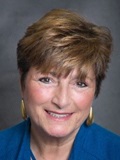
Marcia B. Proto, MEd, CAS
Executive Director
Connecticut Center for Nursing Workforce, Inc.
Marcia Proto enjoys a successful career in state and national association leadership, nursing education and workforce development, healthcare fundraising, and statewide coalition building. She is currently Executive Director for the Connecticut Center for Nursing Workforce (CCNW) as well as the owner of Marcia Proto Consulting, LLC.
Her life’s work has involved connecting people through education and targeted skills training toward fulfilling career paths, particularly in the nursing field. In addition to her roles with the CCNW, she has held management positions at the Connecticut Hospital Association, Junior Achievement of South-East Connecticut, Flath & Associates Consulting, and the National League for Nursing.
Marcia has spent the past 25 years ensuring that the nursing workforce will meet the nation’s growing healthcare needs by contributing to and engaging in state and national workforce development activities, including the Center to Champion Nursing in America, a national initiative funded by the Robert Wood Johnson Foundation in collaboration with AARP.
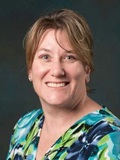
Catherine E. Johnson, PhD, RN, CNE, APHN-BC, RA, CPH
Assistant Professor in Nursing
Pacific College of Health and Sciences
Catherine (Kate) E. Johnson has been a registered nurse for 35 years and was the public health nurse in her community for 13 years (2008-2021). Dr. Johnson has taught Community/Population Health for over 8 years in traditional undergraduate and RN to BSN programs. She is certified in Advanced Public Health Nursing by the ANCC and in Public Health by the National Board of Health Examiners in 2022. In 2021, Dr. Johnson was a member of the Education and Professional Development Committee for the Association of Public Health Nurses, which focused on developing the Public Health Policy Cycle content for the New to Public Health (N2PH) Residency Program. She previously served on the Massachusetts Local Public Health Advisory Committee.
Dr. Johnson graduated from Keuka College in New York with a BSN, earned an MBA from Western New England College in Massachusetts, an MSN from American International College in Massachusetts, and a PhD in nursing education from Capella University in Minnesota.
Tags
Reviewing for Professional Journals: Strategies for Success
October 19, 2023
2:00 PM - 3:00 PM (ET)
Webinar Details
Reviewers serve an essential role in promoting the quality of manuscripts that are published in professional journals. In this webinar, you will learn how to become a manuscript reviewer and how to write a quality review. A step-by-step process for completing excellent reviews will be highlighted.
Objectives:
- Explain the purpose of manuscript reviews.
- Describe steps for becoming a manuscript reviewer and how to respond to a review invitation.
- Examine the process and criteria to use when evaluating manuscripts and making recommendations.
Note: Recording of the webinar will be available soon after the webinar airs. Visit AACN's On-Demand Webinars to watch.
Speakers
Speakers
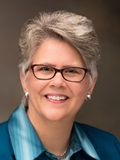
Patricia Morton, PhD, RN, ACNP-BC, FAAN
Editor of the Journal of Professional Nursing
Dean Emeritus
University of Utah
Patricia G. Morton is Dean Emeritus, University of Utah College of Nursing. Dr. Morton has authored three textbooks, numerous book chapters, and over 60 journal articles. She has served on the editorial board of six nursing journals and for seven years was the editor of a clinical journal sponsored by the American Association of Critical-Care Nurses. Currently, Dr. Morton is the editor of AACN’s Journal of Professional Nursing. She is a certified acute care nurse practitioner. Dr. Morton was inducted as a fellow in the American Academy of Nursing in 1999.
Tags
Bringing Gender-Affirming Care to Primary Care: Adapting Nurse Practitioner Program Curriculum
August 15, 2023
2:00 PM - 3:00 PM (ET)
Hosted by the Faculty Leadership Network
Webinar Details
Dr. Rebecca Mueller explores the impact of a multimodal educational intervention, using didactic content, a patient panel, and a standardized patient scenario on preparing nurse practitioners with the knowledge, skills, and attitudes needed to care for people who are transgender and gender diverse. In sharing the results of the study, the presenter will explore recommendations on how nurse educators can integrate this curriculum into undergraduate and graduate nursing programs. Lastly, Dr. Mueller will discuss the priority for integrating diversity, equity, inclusion, and belonging into nursing education.
Objectives:
- Define terminology surrounding transgender and gender diverse (TGD) populations, and gender-affirming care.
- Recognize the effect of a multimodal educational intervention on the ability of nurse practitioners to care for people who are transgender and gender diverse.
- Explore the implications for undergraduate and graduate nursing education.
- Understand the priority for diversity, equity, inclusion, and belonging in nursing education.
Note: Recording of the webinar will be available soon after the webinar airs. Visit AACN's On-Demand Webinars to watch.
Speakers
Speakers
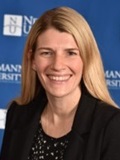
Rebecca C. Mueller, PhD, RN, CRNP, FNP-BC
Associate Professor
Neumann University
Dr. Rebecca C. Mueller is an associate professor of nursing at Neumann University. Prior to joining Neumann, she was employed as a primary care family nurse practitioner in Philadelphia, PA and Las Vegas, NV. In addition to teaching undergraduate and graduate nursing students, she works as a nurse practitioner at Swarthmore College’s Student Health and Wellness clinic providing primary care to a college-aged population. Dr. Mueller received her Bachelor of Science in Nursing from Villanova University, a Master of Science in Nursing from the University of Pennsylvania, and a Doctor of Philosophy in Nursing from Villanova University. She is passionate about the care of adolescents, young adults, and vulnerable populations. After earning her BSN, she spent a year of service with the Augustinian Volunteers program working as a nurse in a free clinic in San Diego, CA. Her background also includes medical-surgical nursing, home health, and community-based nursing. Her passion for equitable health care has translated to research at Neumann to develop and implement curricula focused on caring for patients who are LGBTQ. Dr. Mueller serves on the board of the Southeastern Pennsylvania College Health Nurses Association, and is an active member of the American Association of Nurse Practitioners, earning an AANP and Sigma Theta Tau research grant in 2022.
Tags
Engaging Nurses in Shaping Policy to Address Health Disparities
June 06, 2023
2:00 PM - 3:00 PM (ET)
Hosted by the Research Leadership Network.
Webinar Details
Nurses can significantly impact population health through public policy. During this webinar, Mayor Sofia Aragon shares how she is working to develop local policy to address health disparities among residents exposed to environmental exposure due to airport operations in her city and the region.
Objectives:
- Define the need for policy to address environmental exposures and health disparities
- Discuss examples of public policy to mitigate environmental exposures to populations living near an airport
- Demonstrate how to implement local, state, and federal policy
Note: Recording of the webinar will be available soon after the webinar airs. Visit AACN's On-Demand Webinars to watch.
Speakers
Speakers
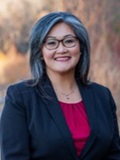
Sofia Aragon, JD, BSN, RN
Executive Director, Washington Center for Nursing
Mayor, City of Burien
Sofia Aragon is the executive director for the Washington Center for Nursing and Mayor for the City of Burien. As Washington State’s nursing workforce center, WCN works to address the nursing shortage. Public policy is her passion. In her previous role as Governmental Affairs Advisor for the Washington State Nurses Association, she represented registered nurses, ARNPs United of Washington, and the School Nurse Organization of Washington. She advocated for legislation on workplace safety, full state adoption of the Affordable Care Act, higher education and public health funding, banning toxins in the environment, racial equity, and other issues. She was elected to the Burien City Council in 2019 and elected Mayor in 2022. As Chair of the Burien Airport Committee, she influences regional, state, and federal legislation to mitigate the health impact of exposure to communities by SeaTac International Airport. Most of Washington state’s communities of color live within a 10-mile radius of SeaTac airport. She partners with other cities, public health and community-based organizations to lessen exposure from the airport and health disparities among communities living and working near the airport. She also voted to pass city ordinances for environmental preservation and addressing climate change, such as requiring the use of compostable products, a tree ordinance, and a city Climate Action Plan. She earned a BA in Economics from UW-Seattle, a BSN in Nursing from Seattle University, and a Juris Doctor from Loyola University-Chicago School of Law.
Tags
ChatGPT Challenges and Opportunities
May 11, 2023
1:00 PM - 2:00 PM (ET)
Hosted by the Organizational Leadership Network.
Webinar Details
ChatGPT is a natural language processing tool driven by AI technology that allows human-like conversations and much more with the chatbot. The language model can answer questions and assist you with tasks such as composing emails, essays, and code. ChatGPT boasts of saving human time by completing repetitive tasks. However, academic dishonesty is one of the challenges nurse educators face in the use of ChatGPT technology. The ChatGPT technology also lends itself to uses that promote student learning and support the nurse educator. This webinar will address the challenges and opportunities of ChatGPT technology.
Objectives:
- Define the need for faculty development in ChatGPT technology.
- Discuss the challenges and opportunities of using ChatGPT.
- Demonstrate how to implement strategies to prevent academic dishonesty, promote learning, and support the nurse educator.
Note: Recording of the webinar will be available soon after the webinar airs. Visit AACN's On-Demand Webinars to watch.
Speakers
Speakers
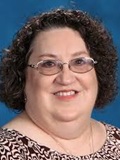
Robin Lockhart, PhD, MSN, RN, CNE
Chair and Assistant Professor
Midwestern State University
Dr. Robin Lockhart professionally focuses on the education, retention, and support of pre-licensure, post-licensure, and graduate nursing students. She has served as a nursing faculty member for the last 29 years. She holds a BSN from Midwestern State University, and an MSN and PhD in Nursing from the University of Texas in Arlington. Her scholarship focuses primarily on pre-licensure student retention. However, she has secured external funding to support nursing student retention, provide new technologies to educate nursing students, increase nurse practitioner enrollment and clinical placement, and improve resiliency of healthcare providers. During her 37 years of nursing, she worked in emergency, critical care, cardiac care, post-surgical, medical, and pediatric units in three acute care hospitals. She served as a relief house supervisor for 16 years. She is a champion of new technologies. Today she is speaking about the use of artificial intelligence in academia, and specifically about the use of ChatGPT. She will share ideas on how to reduce the challenges associated with its use, and how to use it to the advantage of the nurse educator in teaching and scholarship.
Tags
Outcomes from the National Academy of Medicine’s Action Collaborative on Countering US Opioid Crisis
May 05, 2023
2:00 PM - 3:00 PM (ET)
Webinar Details
As the opioid crisis continues to evolve, educational stakeholders may not be sufficiently aware of strategies developed by the National Academy’s Action Collaborative on Countering the US Opioid Crisis to support their faculty and students. Join us for this interactive webinar presented by the co-chairs of the Action Collaborative’s Health Professions Education and Training Workgroup to learn about the current state of the crisis, tools, and strategies developed by the action collaborative, and legislation that will require action by APRN licensees.
Objectives:
- Describe tools and strategies developed by the Action Collaborative to support healthcare professional educators in addressing the US opioid crisis.
- Educational stakeholders can implement at least one tool or strategy within their practice settings.
Note: Recording of the webinar will be available soon after the webinar airs. Visit AACN's On-Demand Webinars to watch.
Speakers
Speakers
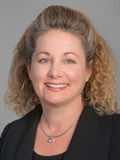
Kathy Chappell, PhD, RN, FNAP, FAAN
Senior Vice President
Accreditation, Certification, Measurement, Institute for Credentialing Research and Quality Management, and Advanced Practice Initiatives
American Nurses Credentialing Center
Dr. Kathy Chappell is the Senior Vice President of Accreditation, Certification, Measurement for the Institute for Nursing Research and Quality Management, and Advanced Practice Initiatives at the American Nurses Credentialing Center. She is responsible for certification of individual registered nurses (RNs) and advanced practice registered nurses (APRNs); and development of board certification examinations. She is responsible for the accreditation of organizations that provide continuing nursing education and interprofessional continuing education; and for accreditation of residency and fellowship programs for RNs and APRNs. She directs the Institute for Nursing Research, analyzing outcomes related to credentialing and other important nursing issues, and the quality management department. She also leads the Advanced Practice Initiatives department. She holds a baccalaureate in nursing with distinction from the University of Virginia, a master of science in advanced clinical nursing, and a doctorate in nursing from George Mason University. She is a Fellow of the American Academy of Nursing and a Distinguished Scholar & Fellow of the National Academies of Practice.
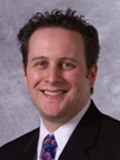
Steve Singer, PhD
Vice President of Education and Outreach
Accreditation Council for Continuing Medical Education
Dr. Steve Singer oversees development of programs and resources to support the ACCME system of accredited CME providers, ACCME-recognized state accreditors, and accreditation volunteers, including the annual ACCME Meeting and ACCME’s online learning portal, ACCME Academy. Dr. Singer also oversees the educational support for Joint Accreditation for Interprofessional Continuing Education, a collaborative initi ative founded by ACCME, American Nurses Credentialing Center (ANCC), and Accreditation Council for Pharmacy Education (ACPE).
Dr. Singer’s liaison responsibilities for the ACCME include the National Academy of Medicine’s Action Collaboratives on Clinician Well-Being and Resilience and Countering the U.S. Opioid Epidemic, the Agency for Healthcare Research and Quality (AHRQ) evidence-based Care Transformation Support (ACTS) initiative, and other partnerships to elevate the role of continuing education as a strategic asset for healthcare change. Dr. Singer received his doctorate in neuropharmacology from the Stritch School of Medicine.
Tags
CNLs: Disrupting the Impact of COVID-19 to Deliver Excellent Care
April 20, 2023
2:00 PM - 3:00 PM (ET)
Webinar Details
Join the Commission on Nurse Certification (CNC) and a panel of certified Clinical Nurse Leaders (CNLs) to hear about efforts to mitigate the lingering effects of COVID-19 even in the most challenging healthcare environments. Find out more about how CNLs are uniquely qualified to advance quality improvement efforts and how their skill set is critical across healthcare settings.
Objectives:
- Explain the unique value of the Clinical Nurse Leader (CNL)..
- Examine how the CNL skill set transcends in different healthcare facilities.
- Discuss how CNLs deliver quality care during COVID-19 and confront burnout.
- Understand CNL evidence-based projects that lead to optimized healthcare nationally and internationally.
- Discuss how data driven methodologies are critical to the CNL.
- Identify examples of the impact of the CNL’s skill set while working in healthcare facilities.
Note: Recording of the webinar will be available soon after the webinar airs. Visit AACN's On-Demand Webinars to watch.
Speakers
Speakers

Jeanne Bernier, MSN, RN, CNL-BC
MSN-CNL Program Director/Instructor
Mississippi College
Jeanne Bernier is the MSN-CNL program director at Mississippi College in Clinton, MS. She currently in her final semester of coursework in the PhD in Nursing program at the University of Tennessee in Knoxville, TN. Jeanne earned her BSN from the University of Alabama Capstone College of Nursing in 2006 and her MSN in Nursing Education from the University of Mississippi Medical Center in 2014. After working as a staff nurse on primarily medical/surgical and gynecological/oncological hospital floors for 8 years, she moved into a full-time role as a nurse educator in 2014 teaching adult health didactic and clinical courses, pharmacology, and research to undergraduate students. Mississippi College began its CNL program in 2019 and, along with program director responsibilities, Jeanne teaches the CNL specific course and oversees students’ clinical projects. The CNL program at Mississippi College is the only one in the state, and Jeanne and the MSN team are busy trying to spread the word and “make the case” for CNLs to area hospital systems.
Tags
Elevating Nursing’s Impact on Boosting Vaccine Confidence
April 13, 2023
2:00 PM - 3:00 PM (ET)
Webinar Details
As the most trusted profession, nurses have the power to mitigate the impact of COVID-19 and other diseases on communities and to keep patients safe. With funding provided by the CDC, AACN launched a national initiative in 2022 focused on Building COVID-19 Vaccine Confidence Among Nurses and in Communities, designed to educate vulnerable populations about vaccines and dispel health misinformation. To achieve these objectives, AACN provided funding to 10 schools of nursing to help faculty and students have effective conversations about COVID-19 vaccinations and raise consumer confidence. This webinar will highlight the various educational and outreach strategies launched by participating schools to reach at-risk individuals and populations.
Objectives:
- Describe how to prepare faculty and students to have effective conversations on the need for vaccinations.
- Discuss how to increase the capacity of nursing school faculty and students to share credible vaccine information and respond to misinformation on social media.
- Explain strategies to engage with local communities through health departments, community-based organizations, and other groups to target key populations and address vaccine hesitancy.
Note: Recording of the webinar will be available soon after the webinar airs. Visit AACN's On-Demand Webinars to watch.
Speakers
Speakers
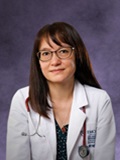
Quyen Phan, DNP, APRN, FNP-BC
Assistant Clinical Professor
Emory University
Dr. Quyen Phan is an Assistant Clinical Professor at Emory University in Atlanta, GA, with more than eighteen years of teaching experience, both in acute care and public health and community settings. Her areas of expertise include nursing education, population-based and public health nursing, primary care, and care of disfranchised populations. She is a PI/PD of several grants, including $8 million dollar grants from HRSA, and one from the AACN, with a focus on nursing training. As a former refugee from Vietnam, Dr. Phan earned her Bachelor of Nursing degree from Ottawa University in Canada, Masters in Leadership Public Health and Teaching minor from Emory University, and Doctor of Nursing Practice and Family Nurse Practitioner from Augusta University.

Lisa Roberts, PH, MSN, FNP-BC, CHES, FAANP, FAAN
Professor/Research Director
Loma Linda University
Lisa R. Roberts is a Professor and the Research Director at Loma Linda University School of Nursing, with a secondary appointment as Professor in the Division of Interdisciplinary Studies in the School of Behavioral Health to facilitate collaborative translational research. Her MSN and Family Nurse Practitioner training was obtained at Western University of Health Sciences, and her Dr.PH in health education at the LLU School of Public Health.
Dr. Roberts’ clinical practice is foundational to her teaching and research. Her clinical focus is primary care and prevention, including vaccinations. She enjoys teaching and mentoring as this provides the opportunity to influence the next generation of nurses and scholars to care for communities, vulnerable populations, and reduce health disparities.

Mel
issa J. Geist, EdD, FNP-BC, PPCNP-BC
Professor of Nursing
Tennessee Tech University
A passionate educator, researcher, and practitioner, Dr. Melissa Geist maintains dual certification as a Family and Pediatric Nurse Practitioner. Her research interest involves interprofessional teamwork, communication, and healthcare mis/disinformation. Dr. Geist serves as the PI for VECTOR (Vaccine Education for Communities to Orchestrate Recovery) and ESTAR Sanos “to be healthy” (Education, Support, Training, Awareness, and Resources), grants from the American Association of Colleges of Nursing and the TN Department of Health to mitigate the adverse outcomes of COVID-19 in rural and Hispanic populations. The grant team has provided education and resources to over 2000 individuals through robust partnerships with groups such as the TN Association of Hispanic Nurses, local ESL programs, and faith-based organizations. Dr. Geist received national honors from the ANCC (Certified Nurse Award, 2017) and the Vanderbilt University Alumni Association (Award for Healthcare Innovation, 2020).

Stefanie Birk, DNP, MSN, MBA, RN
Assistant Professor
DNP and MS Leadership Area Coordinator
University of Missouri
Dr. Stefanie Birk is faculty at the University of MO Sinclair School of Nursing and has spent much of her career in public health and nursing education. She holds a DNP in Nursing Leadership from the University of Kansas, a MSN with an emphasis in public health nursing from the University of Missouri – Columbia, and a MBA from William Woods University. She has 15 years academic teaching experience and teaches courses in both the undergraduate and graduate programs in areas of public health and leadership. Dr. Birk also coordinates the DNP and MS Leadership areas of study.
In spring 2022, grant funding allowed the opportunity to work with nursing students on Covid-19 vaccine confidence projects. Undergraduate and Graduate students completed vaccine confidence modules as well as motivational interviewing sessions which have been integrated into the curriculum. The project team also worked with School of Journalism to create social marketing projects.
Tags
Connection before Correction: Leveraging the Teacher-Learner Relationship
April 12, 2023
2:00 PM - 3:00 PM (ET)
Webinar Details
At the core of nursing education lies the teacher-learner relationship, a cornerstone of our profession. To achieve the transformation required for the full implementation of the AACN Essentials and the transition to competency-based nursing education, we must reimagine this relationship and our roles as educators. Join nurse educators Dr. Mary K. Fey and Dr. Kate J. Morse in this engaging webinar as they embark on a journey of self-reflection regarding their own careers, challenge assumptions about our students, and explore innovative teaching practices aligned with the AACN Essentials.
Objectives:
- To engage in critical self-reflection about themselves as educators
- Explore our assumptions about our learners
- Embrace new teaching practices to implement AACN Essentials
Speakers
Speakers
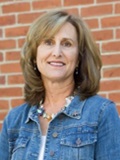
Mary K. Fey, PhD, RN, CHSE-A, ANEF, FAAN
Principal and Managing Partner, Transformative Teaching, LLC
Principal Faculty, Center for Medical Simulation
Dr. Mary Fey has been a nurse educator for over 30 years. She received a PhD & Certificate in Teaching from the University of Maryland. Her initial work as an educator took place in a large academic medical center, where she had oversight of the new nurse transition to practice programs for 10 years. She has held a number of academic appointments in both community colleges and universities. Dr. Fey’s expertise is in faculty development, experiential and reflective learning, and the importance of the teacher-learner relationship. She regularly publishes and presents on these topics. Currently, Dr. Fey is Principal Faculty at the Center for Medical Simulation in Boston, MA, and is a founding partner in the academic consulting firm Transformative Teaching.
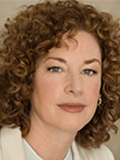
Kate J. Morse, PhD, RN, AGACNP- Ret., CHSE, FAAN
Assistant Dean Innovation and Experiential Learning
Drexel University
Dr. Kate Morse obtained her BSN from the University of Calgary, Alberta; her MSN as a clinical nurse specialist in critical care from San Diego State University; her Post- masters certificate as an Adult Nurse Practitioner from California State University, Long Beach and her PhD from Villanova University. She is a retired Adult and Acute Care Nurse Practitioner and Certified as a Simulation Educator (CHSE). She is a past Jonas Scholar and National League of Nursing Sim Leader. She served as the VP of Membership for INASCL (International Nursing Association in Simulation and Clinical Learning) from 2016 – 2018. Dr. Morse held the positions of Assistant and Associate Director of the Center for Educational Leadership and International Programs Medical Simulation in Boston 2015 – 2019. Dr. Morse is currently the Assistant Dean for Experiential Learning and Innovation in the College of Nursing and Health Professions, Drexel University, Associate Clinical Professor and principal faculty for the Center for Medical Simulation.
Tags
Self-Care: Managing Your Goals by Taking Charge of Your Health
April 11, 2023
4:00 PM - 5:00 PM (ET)
Webinar Overview
There is nothing more valuable than your own health, especially as a caregiver. Join this webinar as the speaker explores the PURPLE prescription to self-care – Pause, Unwind, Relax, Play, Laugh, and Exercise, Eat Mindfully, Escape, Enjoy, and Engage. Use the tips and strategies shared to achieve your own self-care.
Objectives
- Describe Self Care for caregivers.
- Discuss self-care strategies to take charge of your health.
- Discuss how to manage your goals in daily life using self-care tips.
 This Webinar is hosted by the Graduate Nursing Student Academy (GNSA). For more information on the GNSA, visit www.aacnnursing.org/GNSA.
This Webinar is hosted by the Graduate Nursing Student Academy (GNSA). For more information on the GNSA, visit www.aacnnursing.org/GNSA.
Speakers
Speakers
Varsha Singh, DNP, APN, NEA-BC, FAHA, FAANP
Manager Neurosciences/Stroke Program/Telestroke Specialist
St. Joseph’s Health System
Dr. Varsha Singh, DNP, APN, CT-CP, NEA-BC, FAHA, FAANP is a JONAS Scholar who has served as a nursing leader for more than 15 years in variety of roles. At present, she is System Neuroscience/Stroke Program manager at St. Joseph’s University Medical Center and part-time faculty of the FNP program at Fairleigh Dickinson University. Dr. Singh has served in many nurse leadership roles, such as President for the American Association of Indian Nurses NJ2, National Indian Nurse Practitioner’s Association (NINPAA), New Jersey state Nurses Association Region 3, NJ Stroke Coordinator’s Consortium and Forum of Nurses in Advance Practice. Dr. Singh has also served nationally as the Director at Large (2018-2020) for ANA(American Nurses Association). At present, she has been elected to serve as the AANP (American Association of Nurse Practitioners) State Liaison for New Jersey. Dr. Singh has received numerous awards, which include the most prestigious Institute for Nursing New Jersey/NJ State Nurses Association DIVA award and Fellow of AANP. She was a Kellogg’s scholar (2003-2005), Jonas Scholar (2014-2016), winner of Elizabeth Seton Young Alumni award (SHU) by March of the Dimes, Nurse of the Year Award (2015), State Clinical Excellence Award –AANP (2018) and then Sarah Erickson Award at DNP graduation (2018). GOPIO Community Service Award (2020). She also holds Fellowship status at American Heart Association as well as New York Academy of Medicine. She continues to serve within the state, nationally as well as internationally—mentoring, guiding and advocating for advancement of nurses in all areas of practice. She always encourages nurses to follow their dreams and advises that the “sky is not the limit.”
Tags
The ART and Science of Feedback in Clinical Education
March 28, 2023
1:00 PM - 2:00 PM (ET)
Webinar Details
Feedback is a fundamental tool of effective teaching and a skill that, though easily learned, takes a lifetime to master. How we interact with each other when we participate in feedback conversations can greatly influence the quality of our relationships and our work, and is critical to our success as team members, clinicians, and educators. This webinar, led by medical educators Dr. Calvin Chou and Kara Myers, introduces an evidence-based model for feedback that emphasizes a relationship-centered, dynamic, bidirectional conversation in the context of a psychologically-safe learning and working environment.
Objectives:
- Define “feedback” in clinical education
- Assimilate literature on feedback into an approach to hosting feedback conversations
- Describe a method of nonjudgmental delivery of feedback
Speakers
Speakers

Calvin Chou, MD, PhD
Professor of Medicine
University of California at San Francisco
Calvin Chou is Professor of Medicine at the University of California at San Francisco, and staff physician at the Veterans Affairs Health Care System in San Francisco. As Senior Faculty Advisor for External Education with the Academy of Communication in Healthcare (ACH), he is recognized internationally for leading workshops in relationship-centered communication, feedback, conflict, and remediation in health professions education. He is co-editor of the books Remediation in Medical Education: A Midcourse Correction, and Communication Rx: Transforming Healthcare Through Relationship-Centered Communication.

Kara Myers, CNM
Clinical Professor
University of California San Francisco
Kara Myers has been practicing nurse-midwifery since 2000, when she completed graduate training at UCSF. She is currently Clinical Professor in the UCSF Department of OB, Gyn, and Reproductive Sciences. Her clinical practice sites are Zuckerberg San Francisco General (ZSFG) and Mission Neighborhood Health Center. Additionally, she is a member of the leadership council for the nurse-midwifery faculty practice at ZSFG and serves as a Senior Faculty Advisor for the Academy of Communication in Healthcare (ACH).
Kara co-directs the Relationship Centered Communication program at ZSFG and was a founding co-director of the Relationship Centered Communication Facilitators program for ACH. Within the UCSF community and nationally, as faculty of ACH, she regularly facilitates workshops in relationship centered communication, conflict, and feedback. In collaboration with colleagues, she has designed and implemented workshops focusing on the application of relationship centered communication to the promotion of equity in health care and health professions education.
Tags
Publishing Part 6: The Key to a Successful Manuscript Review
February 16, 2023
2:00 PM - 3:00 PM (ET)
Webinar Details
This is the sixth and final webinar in the six-part webinar series on publishing in professional journals. Journals rely on volunteer peer reviewers to be the gatekeepers of the quality of written work. The speaker will describe the components of an excellent manuscript review and what to consider when reviewing a manuscript.
Objectives:
- Explain the purpose of manuscript reviews.
- Describe the steps for becoming a reviewer and how to respond to a review invitation.
- Examine the criteria to use when evaluating a manuscript and making a recommendation.
This webinar is part of a six-part series addressing how to publish in professional journals successfully. For additional webinars in this series, see the links below.
Publishing Part 1: Getting Started with a Topic and Selected Journal
Publishing Part 2: Deciding Authorship, Overcoming Writer’s Block, and Selecting Format
Publishing Part 3: Writing the First Draft and Completing the Final Version
Publishing Part 4: Responding to the Editor’s Decision
Publishing Part 5: Helping Grad Students Turn a Paper into a Publishable Manuscript
Publishing Part 6: The Key to a Successful Manuscript Review
Publishing Part 7: Publishing a Research Report: Strategies for Success
Speakers
Speakers
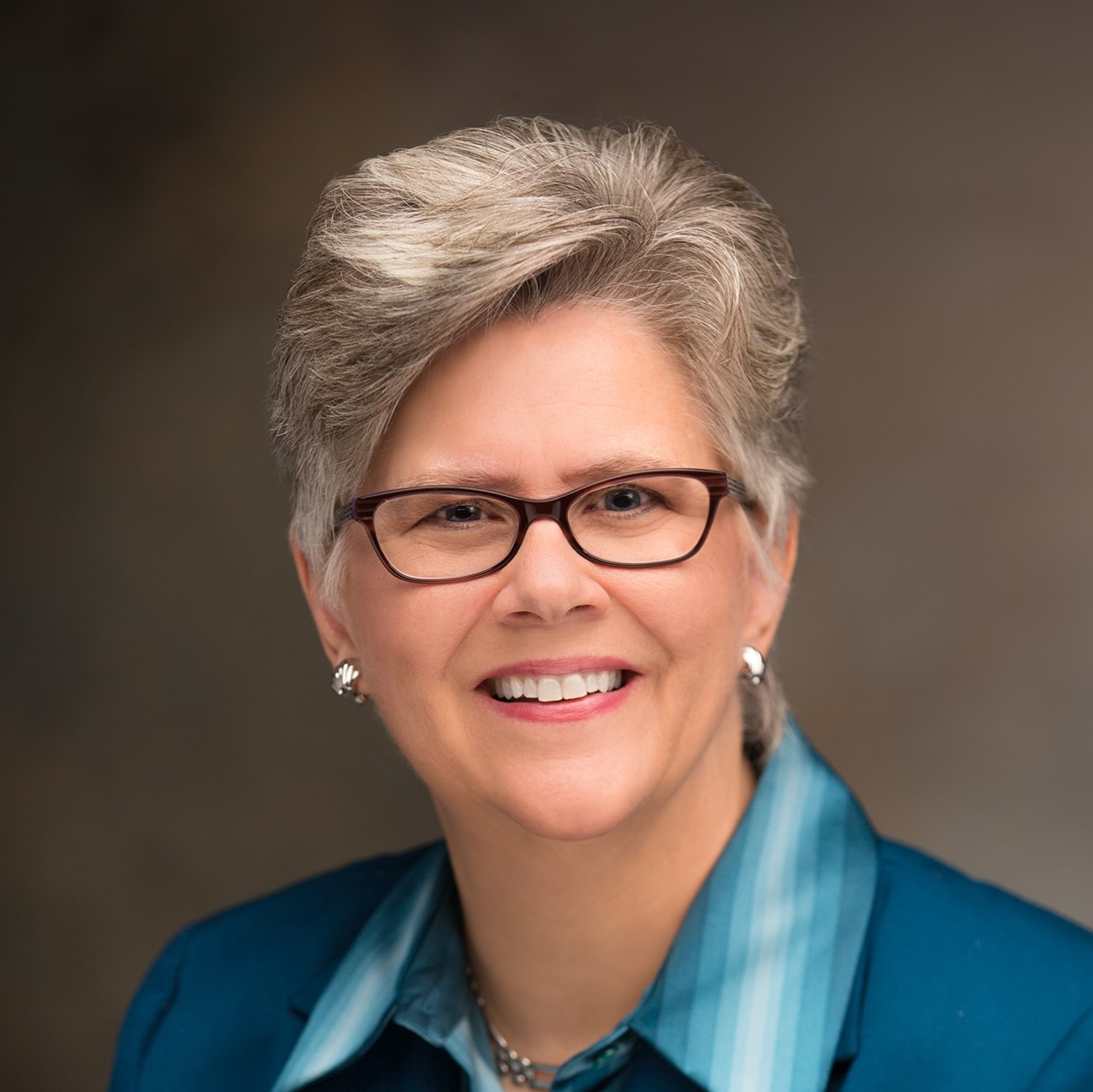
Patricia Morton, PhD, RN, ACNP-BC, FAAN
Editor of the Journal of Professional Nursing
Dean Emeritus
University of Utah
Patricia G. Morton is Dean Emeritus, University of Utah College of Nursing. Dr. Morton has authored three textbooks, numerous book chapters, and over 60 journal articles. She has served on the editorial board of six nursing journals and for seven years was the editor of a clinical journal sponsored by the American Association of Critical-Care Nurses. Currently, Dr. Morton is the editor of AACN’s Journal of Professional Nursing. She is a certified acute care nurse practitioner. Dr. Morton was inducted as a fellow in the American Academy of Nursing in 1999.
Tags
Publishing Part 5: Helping Grad Students Turn a Paper into a Publishable Manuscript
February 08, 2023
2:00 PM - 3:00 PM (ET)
Webinar Details
This is the fifth webinar in the six-part webinar series on publishing in professional journals. Faculty often require or encourage students to publish their graduate school papers and projects. This webinar addresses the key differences between student papers and journal articles, and highlights what editors look for in a publishable student work. Suggestions for guiding students in the transition for a school paper to a publishable manuscript are explained.
Objectives:
- Differentiate the characteristics of a school paper versus those of a journal article.
- Describe the criteria editors use to evaluate a school paper for publication.
- Explain strategies to assist students to turn school papers into publishable journal articles.
This webinar is part of a six-part series addressing how to publish in professional journals successfully. For additional webinars in this series, see the links below.
Publishing Part 1: Getting Started with a Topic and Selected Journal
Publishing Part 2: Deciding Authorship, Overcoming Writer’s Block, and Selecting Format
Publishing Part 3: Writing the First Draft and Completing the Final Version
Publishing Part 4: Responding to the Editor’s Decision
Publishing Part 5: Helping Grad Students Turn a Paper into a Publishable Manuscript
Publishing Part 6: The Key to a Successful Manuscript Review
Publishing Part 7: Publishing a Research Report: Strategies for Success
Speakers
Speakers

Patricia Morton, PhD, RN, ACNP-BC, FAAN
Editor of the Journal of Professional Nursing
Dean Emeritus
University of Utah
Patricia G. Morton is Dean Emeritus, University of Utah College of Nursing. Dr. Morton has authored three textbooks, numerous book chapters, and over 60 journal articles. She has served on the editorial board of six nursing journals and for seven years was the editor of a clinical journal sponsored by the American Association of Critical-Care Nurses. Currently, Dr. Morton is the editor of AACN’s Journal of Professional Nursing. She is a certified acute care nurse practitioner. Dr. Morton was inducted as a fellow in the American Academy of Nursing in 1999.
Tags
Publishing Part 4: Responding to the Editor’s Decision
January 25, 2023
2:00 PM - 3:00 PM (ET)
Webinar Details
This is the fourth webinar offered in the six-part series on publishing in professional journals. The speaker focuses on publishing, centers on responding to the editor’s decision for the manuscript. Understanding a rejection decision and steps for revision, if invited to do so, are also addressed.
Objectives:
- Analyze strategies for responding to the editor’s decision for the manuscript.
- Explain steps for revision of a manuscript when requested by the editor.
- Describe common reasons for rejection and next steps for a rejected manuscript.
This webinar is part of a six-part series addressing how to publish in professional journals successfully. For additional webinars in this series, see the links below.
Publishing Part 1: Getting Started with a Topic and Selected Journal
Publishing Part 2: Deciding Authorship, Overcoming Writer’s Block, and Selecting Format
Publishing Part 3: Writing the First Draft and Completing the Final Version
Publishing Part 4: Responding to the Editor’s Decision
Publishing Part 5: Helping Grad Students Turn a Paper into a Publishable Manuscript
Publishing Part 6: The Key to a Successful Manuscript Review
Publishing Part 7: Publishing a Research Report: Strategies for Success
Speakers
Speakers

Patricia Morton, PhD, RN, ACNP-BC, FAAN
Editor of the Journal of Professional Nursing
Dean Emeritus
University of Utah
Patricia G. Morton is Dean Emeritus, University of Utah College of Nursing. Dr. Morton has authored three textbooks, numerous book chapters, and over 60 journal articles. She has served on the editorial board of six nursing journals and for seven years was the editor of a clinical journal sponsored by the American Association of Critical-Care Nurses. Currently, Dr. Morton is the editor of AACN’s Journal of Professional Nursing. She is a certified acute care nurse practitioner. Dr. Morton was inducted as a fellow in the American Academy of Nursing in 1999.
Tags
Professional Communication through the Emotional and Social Intelligence Lens
December 08, 2022
2:00 PM - 3:00 PM (ET)
Hosted by the Organizational Leadership Network (OLN)
Webinar Details
Positive communication skills are a key component of personal and professional resilience, team performance, and patient outcomes. Yet these skills are not explicitly taught to healthcare professionals, they are often assumed to be present. Research is showing that developing communication skills through an emotional and social intelligence lens benefits all. This webinar will discuss related studies, the verbal escalation continuum and emotionally and socially intelligent communication tips to role-model and develop ourselves and our future nursing professionals.
Objectives:
- Participants will understand the history, definition, and significance of social and emotional intelligence.
- Participants will discuss the ROI and the case for health and wellness.
- Participants will experience an overview of the distinct competencies, application, and measurement of social and emotional intelligence.
Note: Recording of the webinar will be available soon after the webinar airs. Visit AACN's On-Demand Webinars to watch.
Speakers
Speakers

Tammy Cupit, PhD, RN-BC
Director, Nursing Research & Evidence-Based Practice
University of Texas Medical Branch
Dr. Tammy Cupit has been a registered nurse for over 25 years. She currently serves as an Associate Chief Wellness Officer for UTMB Health, directs a Nursing Science & Innovation division and has faculty appointments with the UTMB SON as well as the Graduate School of Biomedical Sciences. Her background is primarily in Behavioral Health nursing. She received her PhD from the UTMB School of Nursing and the Graduate School of Biomedical Sciences. She is a certified Instructor in Communication and Crisis De-escalation from the Crisis Prevention Institute. Dr. Cupit also holds certifications in Emotional and Social Intelligence Coaching from the Institute for Social and Emotional Intelligence and is a certified specialist in Restorative Practices from the National Educators for Restorative Practices (NEDRP). She has conducted local and multi-site social and behavioral research and has spoken regionally, nationally and internationally on her work. Dr. Cupit works with educators, students, healthcare teams and individuals to optimize well-being and joy and to improve professional relationships.
Tags
Nursing and Climate Change: Impact, Urgency, and Engagement
November 17, 2022
2:00 PM - 3:00 PM (ET)
Hosted by the Faculty Leadership Network (FLN)
Webinar Details
Many state, national, and global health agencies have highlighted the impacts of climate change. However, climate change content is still lacking in nursing curricula. This webinar helps faculty prepare students to care for patients impacted by climate change while building climate action and advocacy skills.
Objectives:
- Describe the impacts of climate change on health, contributing factors, and gaps in knowledge and practice.
- Discuss the urgency of integrating climate change content into nursing curricula, including barriers and necessary support.
- List resources for engaging nurses in climate action, including current initiatives and future directions for climate change education in nursing.
Note: Recording of the webinar will be available soon after the webinar airs. Visit AACN's On-Demand Webinars to watch.
Speakers
Speakers

Micki Englert, DNP, FNP-BC, CNE
Professor and Graduate Chair
Rasmussen University
Micki Englert is a Family Nurse Practitioner and Certified Nurse Educator. She completed her bachelor’s and master’s preparation at Thomas Jefferson University in Philadelphia, PA, and her DNP at the University of North Florida. Micki’s practice focuses on preventive medicine, nutrition, environmental health, and climate change. She is also passionate about nursing education and has completed a certificate in E-Learning Instructional Design and Oregon State University. Micki has been teaching nursing students for 10 years and is currently a professor and graduate program chair at Rasmussen University.

Kathryn P. Jackman-Murphy, EdD, MSN, RN, CHSE
Professor of Nursing
Naugatuck Valley Community College and Charter Oak State University
Kathy Murphy received her nursing degree from St. Mary’s Hospital School of Nursing, Associate Degree in Science from Mattatuck Community College, her BSN from Southern Connecticut State University, and her MSN and Doctorate in Education from the University of Hartford. The topic of her dissertation was the Confidence of New Nurse Graduates in the Application of Environmental Health in the Nursing Process.
Dr. Murphy has a vast experience in pediatric nursing, working in pediatrics at Yale-New Haven Hospital, Waterbury Hospital, and St. Mary’s Hospital in Ct, as well as a Public Health Nurse for the City of Waterbury. She has considerable experience in OB nursing having worked in the Family Birthing Center of Waterbury Hospital providing care to new families. She has taught OB clinical experiences for NVCC, Gateway Community College, Yale University and the University of Connecticut.
Dr. Murphy is a Professor of Nursing at Naugatuck Valley Community College (NVCC), an adjunct fac ulty at Charter Oak State College and the University of Hartford where she teaches courses on Environmental Health and Nursing and Climate Change.
Dr. Murphy has several publications on environmental health and climate change and has presented at many conferences on these topics. She is an active member of the Alliance of Nurses for Healthy Environments, co-chair of the Education Workgroup and a member of the Steering Committee. She is one of the editors of the second edition of ANHE’s free online text: Environmental Health and Nursing and has contributed several sections to this publication.

Jennifer J. Wasco, DNP, RN
Assistant Professor, Acute & Tertiary Care
Director of Professional Development & Continuing Education
University of Pittsburgh
Dr. Jennifer J. Wasco is an Assistant Professor of Nursing and the Director of Professional Development & Continuing Education at the University of Pittsburgh School of Nursing. Her scholarly agenda is bifurcated, focusing on environmental health and climate change and nurses' professional development and continuing education at all educational levels.
She has visited Capitol Hill to meet with Congressional leaders to educate them on climate change and human health. She was an invited guest lecturer for the 2019 UCLA Carbon Neutrality Faculty Course Curriculum Workshop and most recently was a panelist for the Oncology Nursing Society Advocacy Webinar discussing implementation science, climate change and the role of the oncology nurse along with congressional members, and leaders from ONS, American Cancer Society (ACS), and the National Cancer Institute (NCI).
Dr. Wasco has published manuscripts on curriculum, pedagogy, online learning, and teaching strategies and has authored a chapter in the 2nd edition of the Environmental Health in Nursing textbook published by the Alliance of Nurses for Healthy Environments. She is currently the primary investigator for a study to identify best practices for incorporating environmental and climate change topics into existing academic coursework while mapping to the newly released ANCC Essentials.
Through advanced quality education initiatives an d programming for nurses, Dr. Wasco hopes to improve the health of the world's people.

Jaclyn McPheeters, MSN, APRN, CCRN, FNP-BC
Family Nurse Practitioner
Integrative Health Group
Jaclyn McPheeters is an AACN board certified Family Nurse Practitioner. She graduated with her Master of Science in Nursing from Lewis University. She practiced as a registered nurse for 12 years in intensive care and is an AACN board certified critical care registered nurse. She previously was a full-time tenure track assistant professor of nursing and taught advanced medical-surgical nursing at Trinity Christian College in Palos Heights.
She is a member of Alliance of Nurses for Healthy Environments. For scholarship she works on her passion of climate change and environmental health advocacy works. In her current role, she directly cares for patients impacted by climate change and she both treats their conditions and helps them to achieve their most optimal state of health through preventative care.

Shanda Demorest, DNP, RN, PHN
Associate Director Climate Engagement & Education
Health Care Without Harm
Shanda Demorest, DNP, RN, PHN is the Associate Director for Climate Engagement and Education at Health Care Without Harm and Practice Greenhealth, where she supports decarbonization and climate-smart health care delivery throughout the sector. Dr. Demorest earned her Doctorate of Nursing Practice in Health Innovation and Leadership from the University of Minnesota, and she holds the LEED Green Associate credential through the U.S. Green Building Council. A cardiovascular nurse with horticultural training by background, Shanda is co-founder of the Nurses Climate Challenge: A national campaign to educate 50,000 health professionals about the health impacts of climate change. Dr. Demorest sits on the Global Climate Change Committee for the Alliance of Nurses for Heal thy Environments and is a former Executive Board member of Minnesota-based Health Professionals for a Healthy Climate. She is a co-PI in the development of CHANT: The Climate and Health Tool, which measures health professionals’ awareness and engagement with climate change globally. Dr. Demorest serves as an Affiliate Faculty member at the University of Minnesota School of Nursing and has published works on environmental sustainability in health care and the health impacts of climate change in local, state, and national journals.